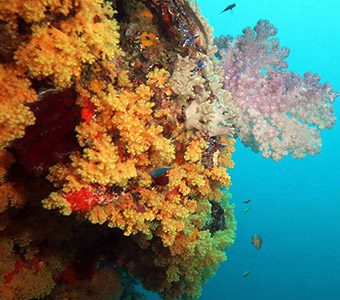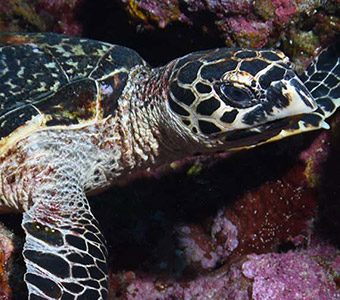Jean-Michel Cousteau shares his thoughts on the future of marine conservation in an exclusive interview at the famously family-friendly Jean-Michel Cousteau Resort in Fiji.
Oceanographic explorer, environmentalist, film-maker and of course, first son to legendary undersea explorer, Jacque Cousteau, Jean-Michel Cousteau has possibly been SCUBA diving longer than any other living soul. His father is credited with inventing the regulator (or Aqua-Lung) and Jean-Michel first dived with one when he was seven years old.
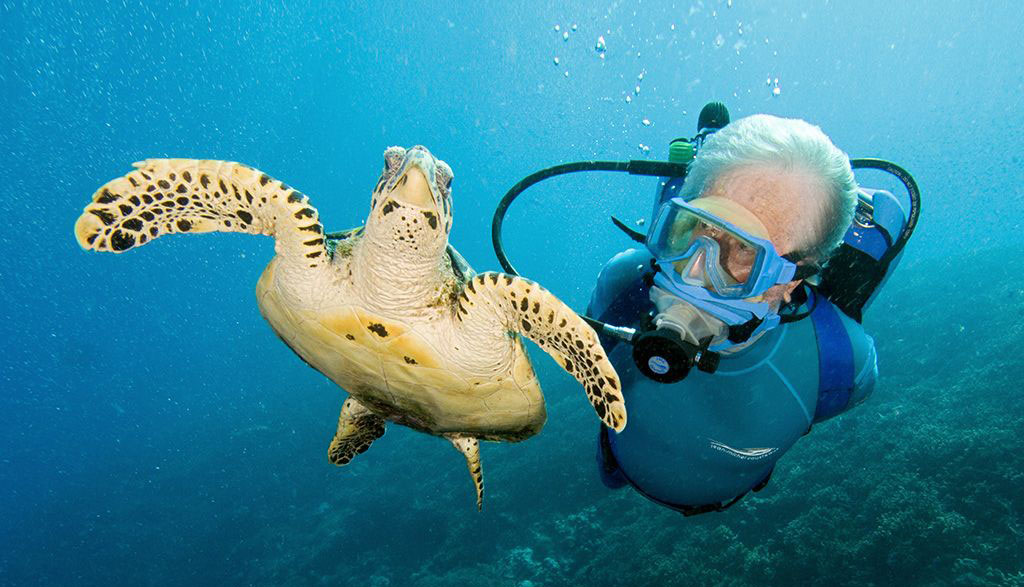
In 1999 he founded the Ocean Futures Society in 1999, a marine conservation and education organisation formed initially in the first attempt ever to return a captive orca to the wild: Keiko, of Free Willy fame.
Jean-Michel has made over 70 films, one of which, in 2006, influenced President George to create one of the world’s largest marine protected areas, in Hawaii, the Papahānaumokuākea Marine National Monument. He also makes an appearance in two mini-documentaries aimed at kids on the DVD releases of The Sponge Bob Squarepants Movie and Finding Nemo.
Having learned to dive at a young age, Jean-Michel has a passion for educating kids about the marine environment and in fact, his luxury eco-resort in Fiji is possibly more famous for being family-friendly than it is for diving. The resort’s ‘Bula Club’, aims to “expand children’s horizons and help them better understand and appreciate the world around them while learning how they can conserve and protect it”.

We chatted to Jean-Michel Cousteau at his Savusavu, Fiji Resort during a recent visit, about the many threats to our marine environment, and its future guardians.
“We live in an age of communication – I call it the communication revolution. Education is key. It’s a fascinating time to be able to communicate on a global basis with decision makers of tomorrow: kids, and they are like sponges.
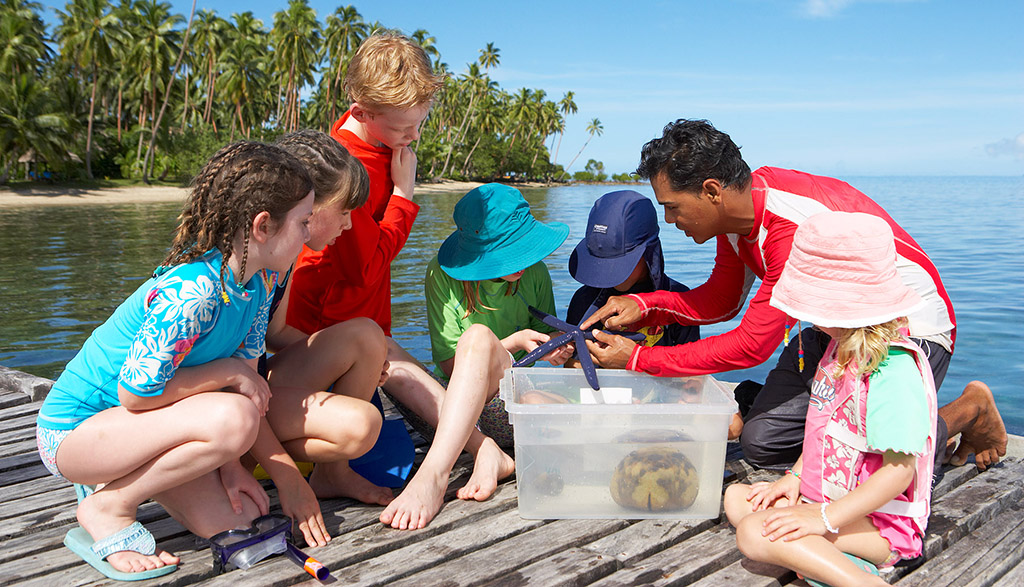
What challenges do we face to save our oceans and what can people do to help?
We’re the only species that has the capacity to solve problems and the privilege to decide not to disappear. We’re the only one. Nature doesn’t care. We can disappear and nature will keep going on.
First of all, everybody needs to understand when you drink a glass of water you’re drinking the ocean. There’s only one water system. If you go up in the Alps or wherever on top of the mountains to go skiing, you’re skiing on the ocean. That water system is life for every plant, every animal, and we need to manage it like a business. We need to make sure it’s not polluted and we need to stop using the ocean ultimately as a universal sewer.
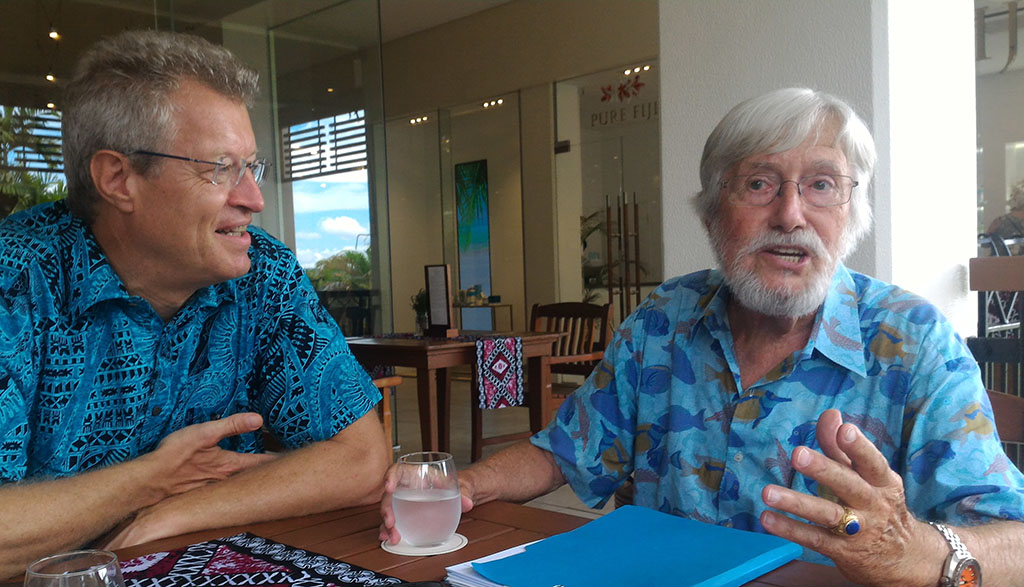
Plastic pollution is a big problem. Whether you live near the coastline or far inland, makes no difference. Ultimately, anything littered is going to find its way into a stream and out to the ocean.
There are islands in the middle of the Pacific where thousands albatross gather to mate and raise their young. Thousands of these babies are dying before they can fly, having ingested plastic fed to them unwittingly by their parents.
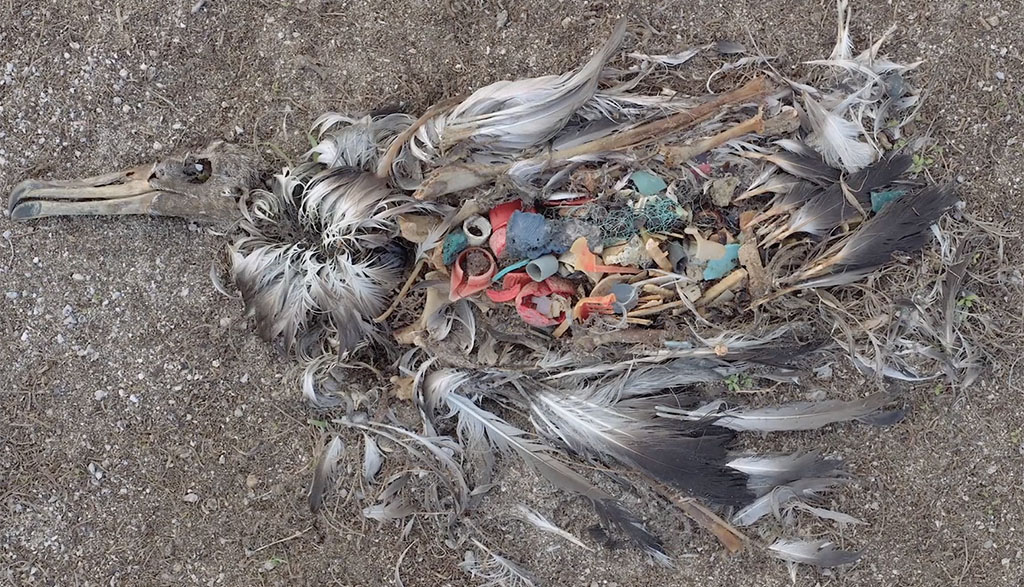
Scientists studying the dead chicks have found anywhere between eight and 12 pieces of plastic in their stomach. Cigarette lighters, mascara, toothbrushes, toys, bottle tops… I counted 52 different countries as sources for this pollution in the middle of the Pacific.
And as plastic photo-degrades, it goes all the way down the food chain, effecting even plankton. Fish eat the plankton, and it goes all the way back up the food chain to our own dinner table. Of course the seafood likely to affect us more are things like oysters and clams, the filters of the ocean, which we eat whole, unlike fish, which is gutted. We eat everything after the oyster. I don’t touch them anymore. I used love them. Loaded with chemicals and heavy metals.
How do you educate people about these threats?
What’s very important is never to criticise, never point the finger. Try to reach the hearts. That’s how I convinced President W. Bush, by showing him our film, Voyage to Kure. Kure is the last island of the North Western Hawaiian Islands, which span 1200 miles. They showed the film at the White House and I was sitting next to Mrs. Bush who asked me questions non-stop. I’m totally convinced that night when they went to bed, she probably told him “George W., you better do something!”
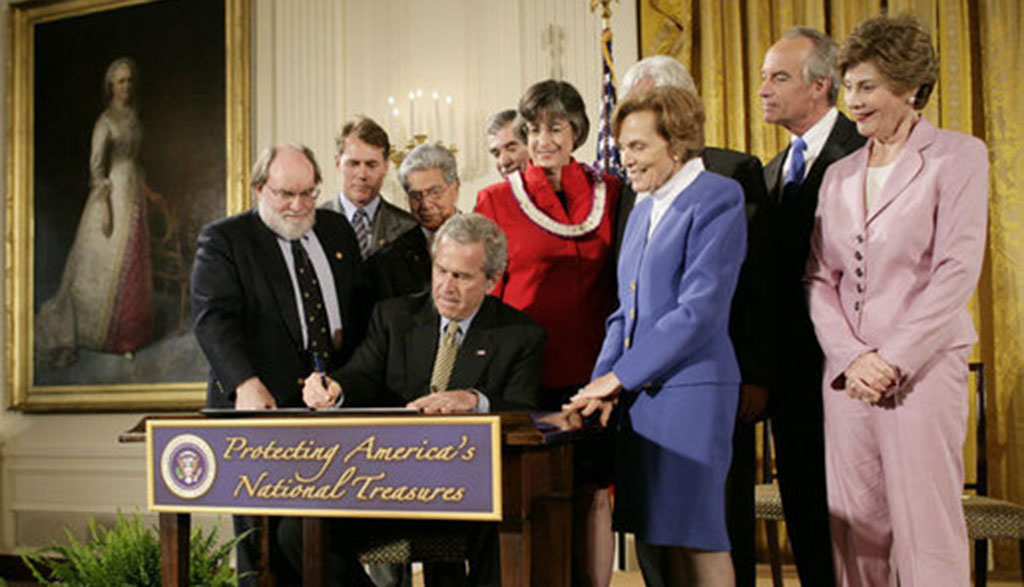
He created the largest marine protected area at the time. Three years ago, president Obama went on to multiply what Bush had done by four. That to me, is how we can make a difference. We’re getting there little by little.
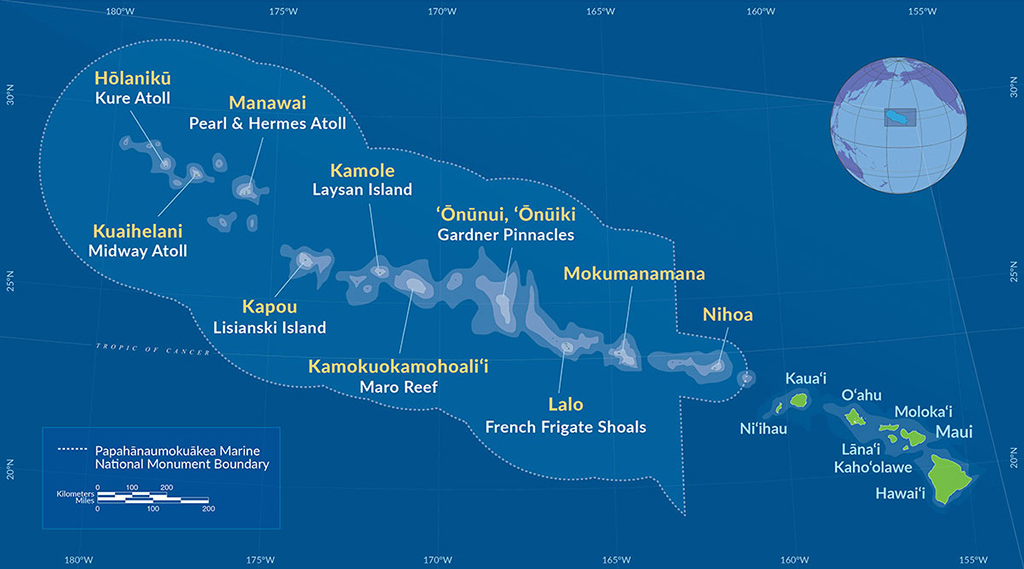
But time is of the essence. That’s why I’m not giving up. At least, not until I turn 107 and can celebrate 100 years of SCUBA diving. Until then, I’ll do everything I can to make sure people realise we’re all connected through a life support system – our oceans.
How are you getting the message out in Fiji?
In Fiji, in Savusavu at the resort, on the weekend I ask all the employees “Can you have all your kids come to the beach?” The kids came to the beach and we had bags and I said; “We have one hour to pick up all the plastic around the coastline.” The kids were running around, up, up, up. 15 bags in one hour full of plastic.
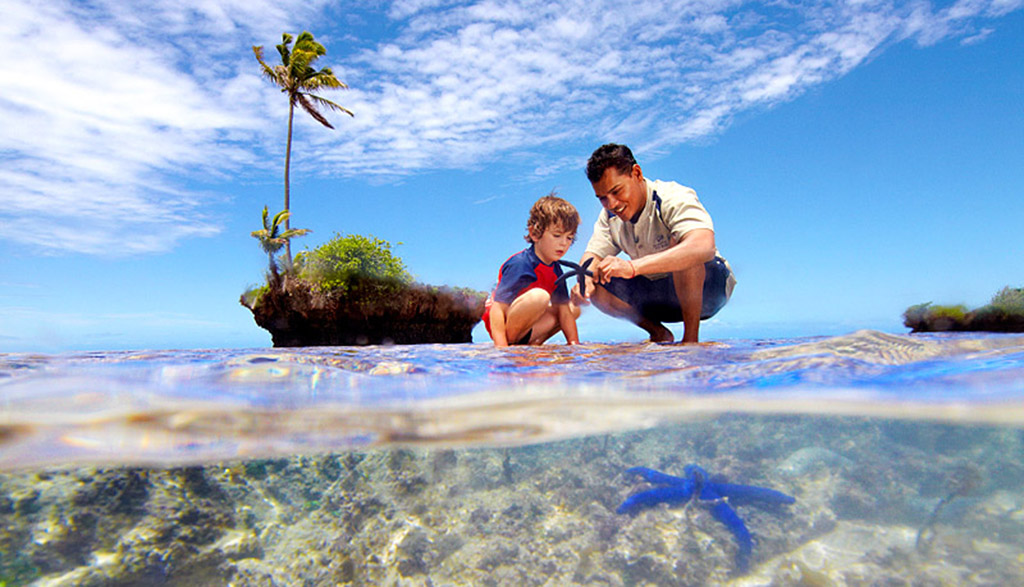
We filmed the whole thing and I’m going to make it two to three-minute show. I’m going to have that show on every airplane of Fiji Air so visitors coming to Fiji can see that Fiji have the first kids on the planet that are making sure we don’t destroy what we are falling in love with.
We’re impressed that Fiji has already gotten the message about plastic straws. Almost everywhere you go, drinks are served with metal straws.
But bottled water is a bigger concern here in Fiji. Fiji Water is making millions of dollars. You go all over California and you have it everywhere. But little by little we are making a difference. We got rid of bottled water here at the resort years ago. Guests are provided with stainless steel reusable bottles which can be filled at the bar for free and are replaced in the mini-bar every day.
So why did you choose Fiji for your resort?
The culture. The Fijian culture for me is a treasure. My opinion it’s the best destination anywhere on the planet.
And what’s your best ever dive?
The next one.

